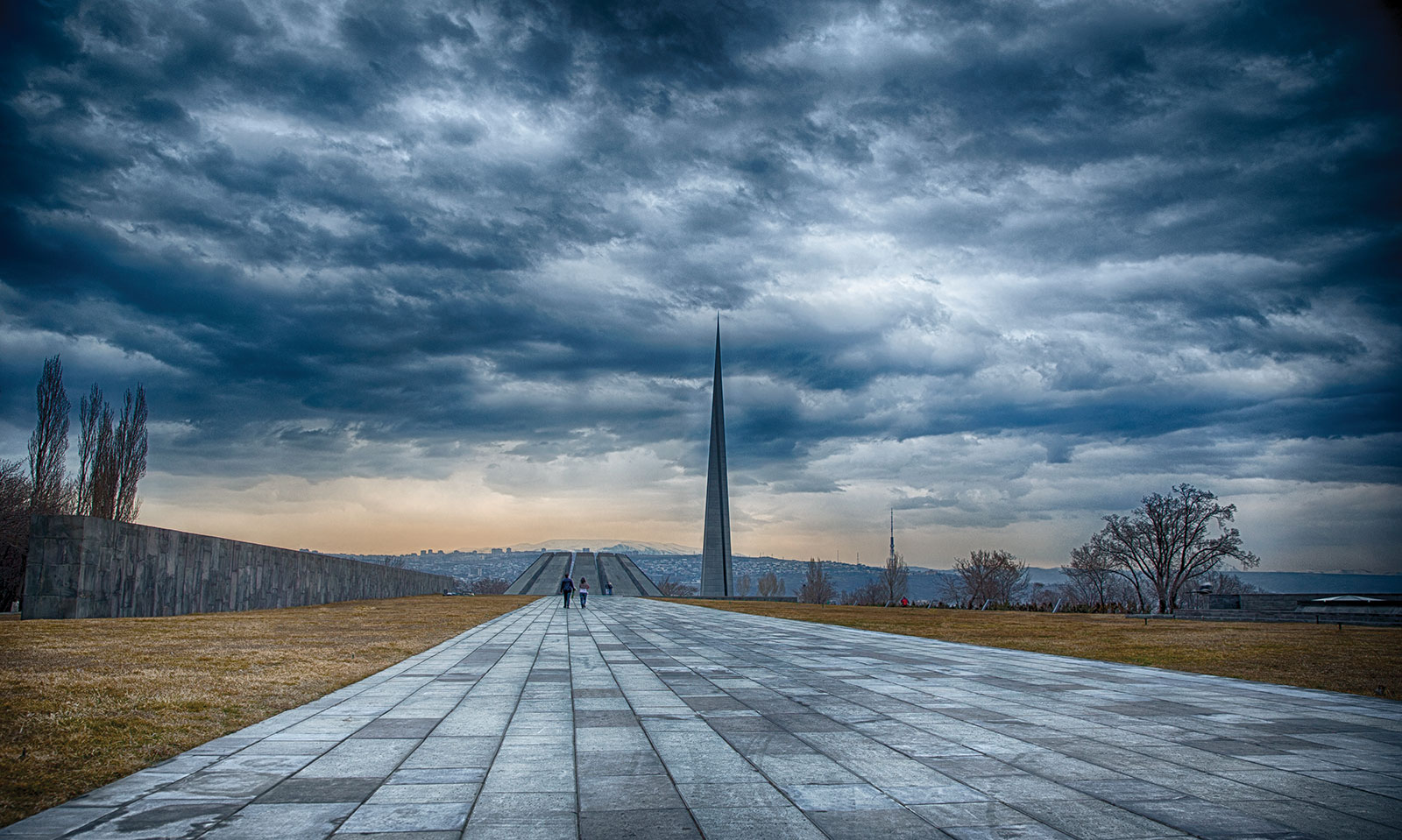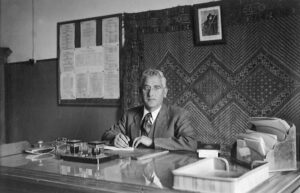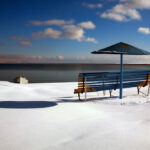
PREVIOUSLY we left Daniel and his mum deported for the 2nd time.
FROM DANIEL’S DIARY
37- ‘In the “Black Hole” of Aintab’
There were about 30 of us, I think all of us were boys. We were marched to Aintab about 10 km from the quarry, and enclosed in a room about 5 meters by 5, the “Black Hole” of Aintab I came to call it after I learned about the Black Hole of Calcutta.
The door and the window shutters were tightly closed and a large can of water was put in a corner. We had some bread with us. As the quarry was evacuated the people of Aintab distributed bread rather generously for the long and perilous journey to death, which everybody knew the elders of the group were destined to. I have never understood why the Turks did not imprison or slaughter all of us right there to save us and them all the trouble. Could it be that their conscience forbade it? Or that they wanted a slow death for us with torture? Thus, about 30 children aged 5-8 year, remained in this dark room for several days, not knowing when it was day or night. We ate our bread, drank water from the tin can and left our excretions on the floor where we slept. We were imprisoned in this square room for 24 hours without going out. Now, this strikes me as terrible, but at the time none of us minded it, because the life we had just left behind was not any better. Now we had one great advantage, bread to eat.
We may have spent about a week in that room without even the door being opened once. It may very well be 2 or 3 days or as many as ten days. I had no way of counting the days of this imprisonment on our days in this ‘Black Hole’ of Aintab.
38- ‘I am rejected’
One day, at last the door was opened and we saw daylight again, I could see the moist foul air rushing out of the room. This air must have carried with it terrible odors, because all the people who were in the court-yard ran away from the door as far as they could. We were so used to those odors that we did not feel it at all. It is possible that some of us had fainted or even had suffocated to death in the room, but we did not pay any attention to such “minor” events, we were not afraid of anything like death, we had no concern or pity for our comrades.
Somebody asked those of us who were alive to come out and line up against the wall. At the other end of the yard, as far from us as possible there were 8 or 9 Turks who were standing against the wall opposite us. One by one these Turks chose the boys they wanted and took them away with them.
Nobody wanted me, so with those others, who were not wanted, I had to go back into the Dark Hole of Aintab. This process was repeated on later days until a Turk chose me, as by that time no better lad was available in our group.
 “He didn’t hug a lot, never spoilt us, rarely kissed us but there was a lot of love by being kind and spending a lot of quality time with us”. This was what my mother said about her father Daniel when I asked her recently. She continued to describe him as a discreet man who never showed emotion though he used to tell simple jokes and was the first to laugh at them. How could he show emotions I wondered when his childhood was so cruelly taken from him? Reading his diary, you can see that by the time he was seven he was immune to cruelty, death, disease and hunger. Daniel said that he was confused as to why the Turks did not just kill all the Armenians and saved themselves and their victims the trouble. I am wondering the same thing. It would have saved time, trouble and most especially money and manpower. I am not a historian with a 360 degree view of all the historical facts and the motives but it does seem strange to me too that they dragged a million or so people around the countryside until they dropped dead from hunger and disease and didn’t just put them up against a wall and shoot them. Sadly, Daniel died when he was about 61 years old and I was about 10 or 11 so I never got the chance to ask him all the burning questions I have now and the ones I’m being asked through this blog. My mother also says that he never spoke about the Genocide and never said a bad word against the Turks. I so wish he was here right now so that he could explain to me how he survived intact and became the wonderful man he was.
“He didn’t hug a lot, never spoilt us, rarely kissed us but there was a lot of love by being kind and spending a lot of quality time with us”. This was what my mother said about her father Daniel when I asked her recently. She continued to describe him as a discreet man who never showed emotion though he used to tell simple jokes and was the first to laugh at them. How could he show emotions I wondered when his childhood was so cruelly taken from him? Reading his diary, you can see that by the time he was seven he was immune to cruelty, death, disease and hunger. Daniel said that he was confused as to why the Turks did not just kill all the Armenians and saved themselves and their victims the trouble. I am wondering the same thing. It would have saved time, trouble and most especially money and manpower. I am not a historian with a 360 degree view of all the historical facts and the motives but it does seem strange to me too that they dragged a million or so people around the countryside until they dropped dead from hunger and disease and didn’t just put them up against a wall and shoot them. Sadly, Daniel died when he was about 61 years old and I was about 10 or 11 so I never got the chance to ask him all the burning questions I have now and the ones I’m being asked through this blog. My mother also says that he never spoke about the Genocide and never said a bad word against the Turks. I so wish he was here right now so that he could explain to me how he survived intact and became the wonderful man he was.
Some more to keep you going until next time…
MORE FROM DANIEL’S DIARY
39- I was “Adopted”.
The Turkish Agha who chose me was a corpulent giant of a man. He said nothing to me, just pointed with his finger to follow him from a distance of 5-6 meters. We reached his house which later on, I found out was on the north-eastern hill of Aintab, near the town citadel.
At this time (about August 1916), I hadn’t yet learned to converse in Turkish nor in Armenian. As a child the only language I spoke was my native Zeitun dialect of Armenian, incomprehensible even to other Armenians or almost incomprehensible.
Ahmed Agha, was the name of that man. He put me in the hands of Arsho, an Armenian girl of 18 or 19, whom he had taken as a maid. Arsho burned all my clothes, swarming with vermin (lice), gave me a bath and some rags to wear, which at least were clean. For the first time in one year and a half, I was wearing new rags but free from lice. Then, Arsho gave me a good meal of pilav (rice) and bread, and began to explain the situation to me. We were two little conspirators in the possession of a Turkish family. Arsho was the person who really adopted me and she did her best to help me out. She fed me well, kept me clean and informed me of the plans Ahmed Agha and his wife had for me.
TO BE CONTINUED..
Menak Parov…See you next Wednesday


0 Comments